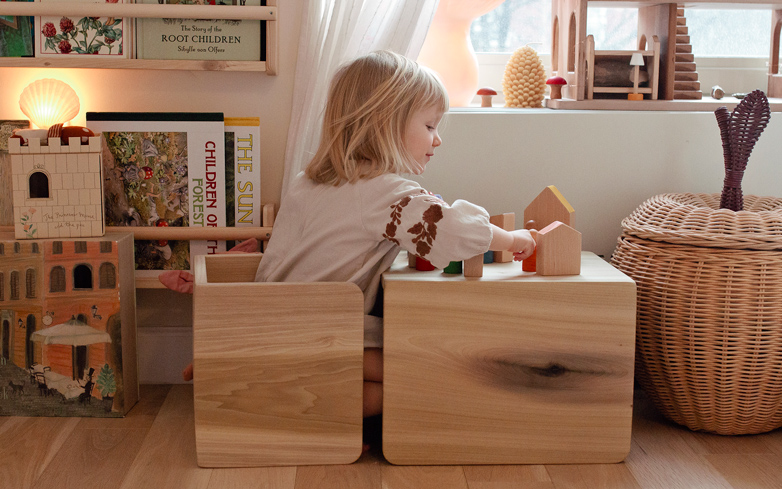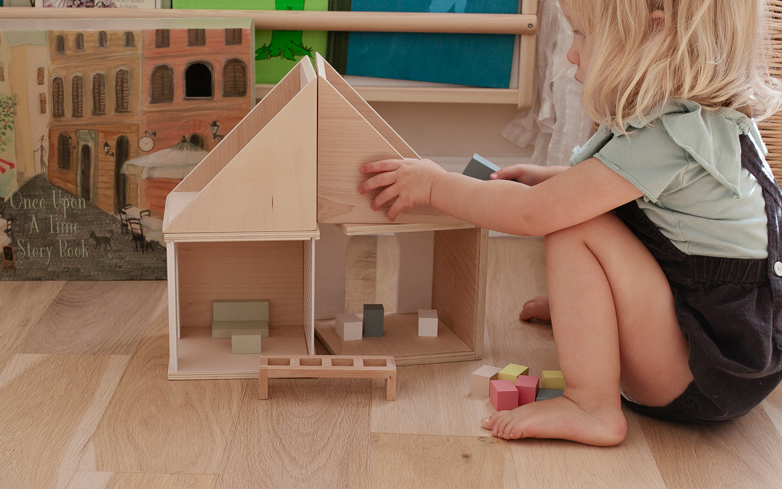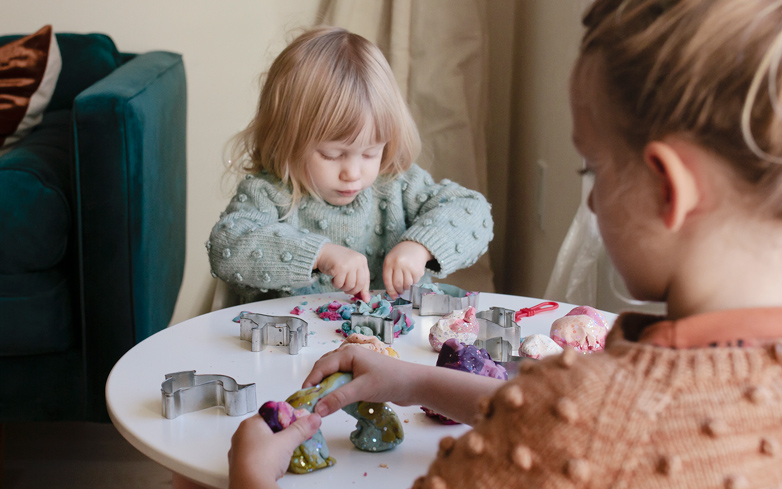5 Ways to Occupy Children While Working from Home

Now more than ever, our children need daily opportunities to engage in independent play. This type of play helps them develop self-reliance, emotional regulation and problem-solving skills (and we don’t need to tell you why it’s great for parents, too!). Here are five tips to help you work from home while keeping your little ones happily learning through play.
Reflect on the play spaces available to your child. Choose one play space in your home and spend a few minutes kneeling, squatting or sitting at your child’s height. What can your child see and reach? Which areas feel most inviting at your child’s height? Are there any spots that feel cluttered or overwhelming? Use the information you collect to change the set-up, from the types of storage to the play materials offered. A meaningful, safe play area will help little ones develop independence by encouraging them to initiate play on their own, without prompting or intervention on your part.

Create a basket or tray of “work” so an older child can occasionally join you in the office. Sometimes children simply want to play beside you while you work. You can create a tray of play materials, including sticker books, notebooks and washable markers. Joining you for mini work sessions helps children feel included. It’s helpful to set clear expectations though. For example, you can say, “When this call is finished, you’ll head back to the playroom with Mama and Violet” or “Let’s listen to two songs while we work and then you’ll head back to the playroom.”
Set up your child’s play area with a small selection of intentional, developmentally appropriate toys (think building blocks, loose parts, play silks and wooden animals), then take a step back — literally! Move away from the play space, putting some distance between you and your little one. By doing so, you can still observe their play, while inviting them to engage autonomously.
Use a visual door sign to distinguish when you’re in a meeting vs. available for quick visits. One side might include a drawing of you chatting on the phone, labeled MEETING. The other side could feature a drawing of you working on the computer with the words COME VISIT. I often use the MEETING side because I have lots to get done, but I do welcome brief visits throughout the day — especially when these visits include snacks, cuddles or coffee!

Take the pressure off! You may have heard the quote, “Play is the work of childhood,” and nothing could be more true. You don’t need to offer endless art projects or science experiments for your child to grow and develop. When children have extended time (at least 30 minutes) to engage in unstructured, open-ended play, they act out things that are happening in their lives, explore emotions, and try on new ideas. Through play, children process milestones and transitions they may not fully understand, like staying home from school or missing an extended family member.
Meet Allison Klein
Allison Klein is the Founder of Rose & Rex, which is an online children’s play resource offering curated content and a selection of elegantly designed toys that promote imaginative play. She received a B.A. in Anthropology with minors in Psychology and Writing from Washington University in St. Louis, and a dual M.S.ED degree in Early Childhood and Childhood Education from Bank Street College of Education.

While in graduate school, Allison studied the importance of imaginative play on early childhood development, and later applied this research in pre-kindergarten classrooms where she worked. As she watched her students grow and transform, Allison knew she wanted to start a broad conversation about the importance of play for children in today’s results-driven culture and started Rose & Rex in 2016. Recently named to the Forbes 30 Under 30 list as a leader in the eCommerce category, Allison is passionate about making sure that all children have the right to play. A native New Yorker, Allison lives on the Upper East Side and appreciates the abundance of experiential learning opportunities that exist on every street.





